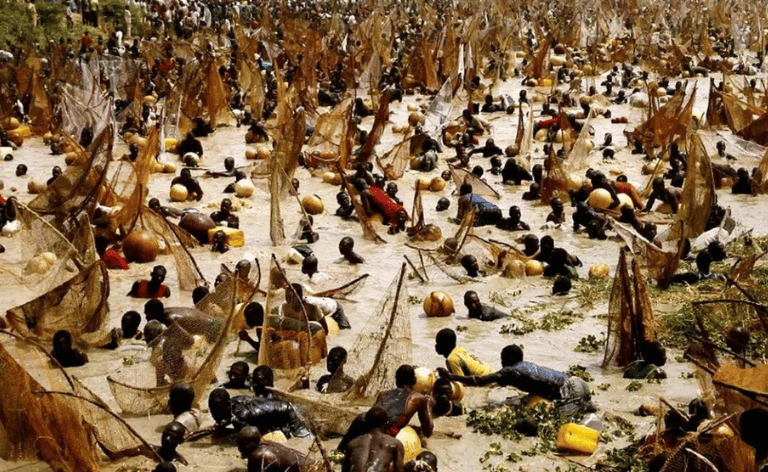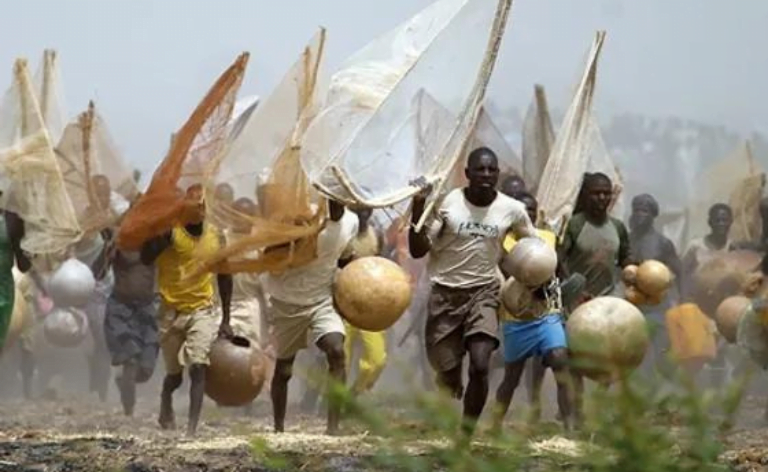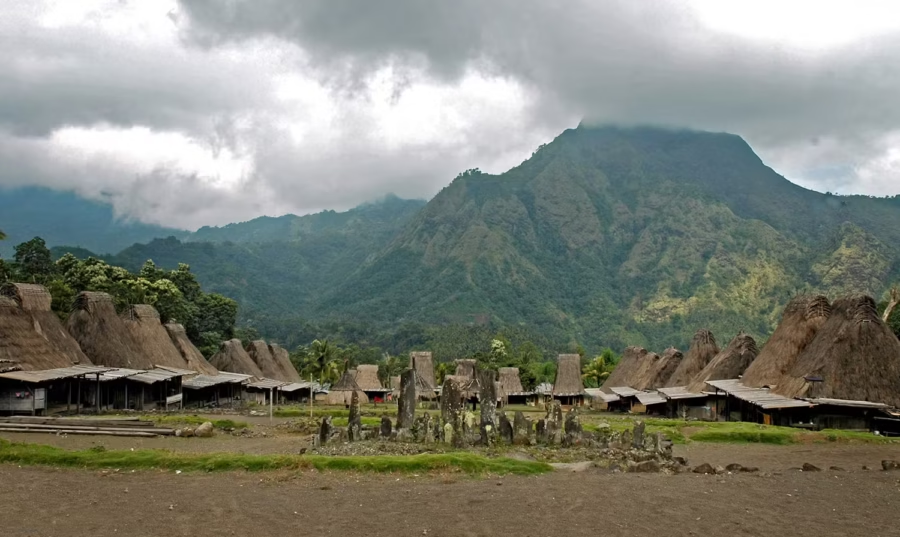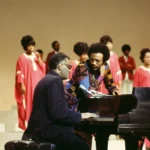The Argungu Fishing Festival: A Celebration of Culture, Unity, and Tradition

The Argungu Fishing Festival was always a captivating sight on the front pages of newspapers during my secondary school days. I was enthralled by the colossal fish caught, the multitude of people in the river simultaneously, and the unique tools employed for the fishing. Looking at those old pictures, it was evident that this was a grand event, but I needed clarification about its significance beyond its ability to attract a global audience. As time passed, the essence and importance of the Argungu Fishing Festival gradually faded from Nigerian culture. I decided to delve deeper into the festival’s history and unravel the reasons behind its gradual decline. Here’s what I discovered.
The festival has been going on for more than 80 years.
The Argungu Fishing Festival boasts a history spanning over 80 years. This tradition dates back to 1934, when it was established by Alhaji Muhammadu Sama, the then-Emir of Argungu, to mark the end of longstanding hostilities between the Sokoto Caliphate and the Kebbi Kingdom in Northern Nigeria. The Emir crafted the festival to promote peace and harmony among the region’s inhabitants while commemorating the abundance of fish in the Sokoto River. Typically held in February, it coincides with the conclusion of the farming season.
The fishing competition is the festival’s main attraction.
The festival’s main attraction is the fishing competition, where fishermen from different corners of Nigeria and other nations converge. The competition’s victor is the one who manages to hook the largest fish in the river on the festival’s third day. What sets the Argungu Fishing Festival apart is the traditional fishing method employed during the competition. Instead of using fishing poles, participants wade into the river, nets in hand, capturing fish with their bare hands—an ancient technique known as “Kanawa.” The competition spans a single hour, with the fishermen who catch the largest fish earning the title and a prize exceeding $7,500. In 2005, a fisherman set a remarkable record by catching a fish weighing a colossal 75kg. Over 50,000 fishermen participate in the competition yearly.
The Sarkin Ruwa Plays A Major Role in the Festival
The pivotal figure in the festival is the Sarkin Ruwa, who serves as the guardian of the Mata Fada River—the site of the fishing competition and the Argungu Fishing Festival. Before the competition commences, the Sarkin Ruwa undertakes rituals and offerings to the river oracle, seeking its approval and ensuring the river’s safety. This ritual includes the removal of crocodiles from the river and the invitation of fish from connected rivers. Without the Sarkin Ruwa’s consent, no fishing can take place.

Several cultural activities are part of the festival.
In addition to the fishing competition, the Argungu Fishing Festival features a rich collection of cultural activities, such as music, dance, and traditional wrestling. The festival serves as a tribute to Kebbi State’s cultural heritage and offers a stage for showcasing traditional arts and crafts. Highlights of the event include:
- Traditional music and dance performances. The drummers play the special kebbawa drums made of cow skin
- Delectable local cuisine.
- Vibrant displays of traditional costumes and crafts.
Furthermore, it provides a platform for local artisans and entrepreneurs to exhibit and sell their products.
People from all over the world attend the festival.
The Argungu Fishing Festival has achieved international acclaim, drawing visitors from across the globe. Its unique cultural experience celebrates the rich history and traditions of Kebbi State. Recognizing its growing popularity and economic potential, the Kebbi state government took over the festival. The festival has attracted dignitaries such as General Yakubu Gowon and Alhaji Diori Hammani, who were the first Heads of State to visit in 1970, setting the stage for subsequent visits by Presidents and Governors of Nigeria.
In recent years, the festival has suffered difficulties.
In recent times, the festival has faced challenges. Security concerns and the impact of climate change on the river’s fish population have presented obstacles. The festival was cancelled in 2009 due to security concerns related to terrorism and banditry, though it returned in 2020. Additionally, the festival has had to contend with fluctuations in fish populations caused by climate change, leading to the suspension of the competition in certain years.
Despite these challenges, the Argungu Fishing Festival remains a unique cultural event that pays homage to the rich history and traditions of Kebbi State. However, its enduring legacy, symbolizing peace, unity, and global appeal, shines brightly. This festival celebrates cultural and economic significance and serves as a powerful reminder of the potential for unity and cooperation among people of diverse backgrounds, emphasizing our shared humanity and cultural diversity.
My People Your People highlights different tribes across Africa and explains their traditions and customs. You can read more about it here.








